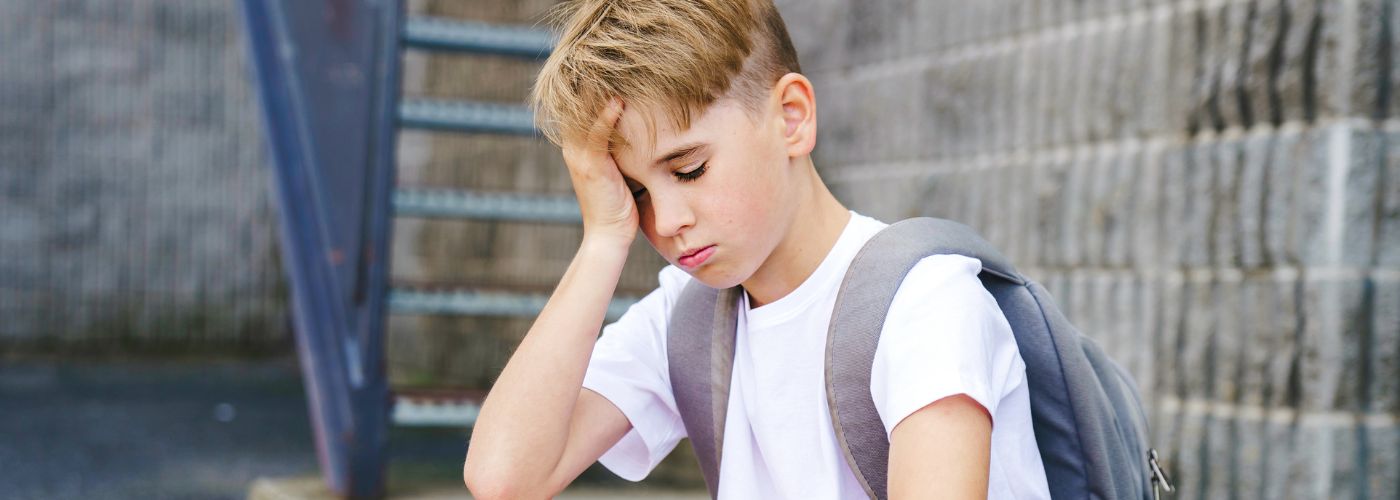In a world that often feels overwhelming, even the brightest young kids can find themselves shrouded in clouds of despair. The smiles they wear may mask a deeper struggle, leaving parents and caregivers searching for effective ways to support them. We’ll be going over coping skills for kids dealing with depression.
Tips For Kids Dealing With Depression
For kids dealing with depression, cultivating coping skills is crucial for navigating their emotional landscape. One effective strategy is to encourage creative expression through art or writing.
This not only provides a healthy outlet for emotions but can also foster a sense of accomplishment and self-discovery as they visualize their feelings. Engaging in activities like journaling about daily experiences or creating colorful artwork allows children to externalize their inner turmoil in ways that feel safe and manageable.
Additionally, fostering strong connections with trusted adults can significantly enhance emotional resilience. Encourage kids to speak openly about their feelings with parents, teachers, or counselors who can provide guidance and understanding.
Depression therapy is often used as an intervention for kids to cope with their own emotions, experiences, and issues they’re dealing with.
Mindfulness and Relaxation Techniques for Children
Incorporating mindfulness and relaxation techniques can be a game changer for kids dealing with depression. One effective approach is teaching kids to focus on their breathing through simple exercises.

Getting them to close their eyes, take deep breaths, and visualize a calm place can help ground them in the moment, reducing anxiety and enhancing emotional resilience. Encouraging kids to express gratitude daily by listing simple things they appreciate—like a sunny day or a favorite snack—can shift their perspective and foster positive emotions.
Another mindfulness technique kids can use is engaging in body scans, where they mentally check in with different parts of their body, noticing any areas of tension or discomfort.
This practice promotes bodily awareness and helps children recognize the connection between their physical state and emotional well-being. Start by having them find a comfortable position, either sitting or lying down.
Encourage them to close their eyes if they feel comfortable doing so and take a few deep breaths, inhaling deeply through the nose and exhaling slowly through the mouth. Then, guide them through every body part.
Helping Kids Express Themselves During Tough Times
Encouraging kids to express themselves is crucial, especially during tough times. One effective method is engaging in role-playing scenarios. Kids often feel isolated in their emotions, and playing different characters can help them articulate thoughts they might otherwise keep buried. This exercise is commonly used in children therapy sessions.
This approach promotes empathy and understanding of their own situation while providing insight into how others navigate similar feelings. Moreover, creating an environment where discussing mental health is normalized – perhaps through family meetings or casual chats – fosters open lines of communication that can break down the walls of silence.
Another communication exercise they can do is the feelings chart. This involves creating a visual representation of various emotions, which can help kids identify and label what they are experiencing.
By using colors, symbols, or drawings to express their feelings on paper, children may find it easier to communicate complex emotions verbally.
Promoting Physical Well-Being For Kids Dealing With Depression
Promoting physical well-being is a vital component for kids grappling with depression, as exercise has profound effects on mood and overall mental health.

Engaging in regular physical activity helps release endorphins—those feel-good hormones that act as natural mood lifters. Instead of viewing exercise as a chore, encourage children to think of it as playtime, selecting activities they genuinely enjoy, whether it’s dancing to their favorite songs or playing tag at the park.
Incorporating movement into everyday routines can make all the difference; even family bike rides or nature walks can open up spaces for conversation and connection.
One physical activity parents and kids can do together is weekly sports nights where everyone participates in their favorite games—whether it’s soccer in the backyard, an impromptu volleyball match at the beach, or even friendly competitions in video games that require movement like dance-offs or fitness challenges!
How To Create Supportive Environments For Children With Depression
Creating a supportive environment for kids dealing with depression involves fostering open communication and emotional safety. Encourage kids to express their feelings without judgment; let them know it’s okay to talk about sadness or frustration.
Regular family check-ins can help normalize these discussions, making it easier for children to explore their emotions rather than bottle them up. Understanding their feelings as a natural part of life helps in reducing the stigma surrounding mental health.
Exploring Cognitive Behavioral Techniques For Kids
One practical approach for kids dealing with depression is exploring cognitive behavioral techniques. This strategy helps them understand how their thoughts influence their feelings and actions. This overall empowers children to overcome their issues.
One exercise used with kid’s cognitive behavior therapy is the Thought Record exercise. In this activity, children are encouraged to write down specific thoughts they have throughout the day, particularly when they feel sad or upset.
They can then analyze these thoughts by asking themselves a series of questions:
- 1. What was happening when I had this thought?
- 2. How did this thought make me feel?
- 3. Is there evidence that supports this thought?
- 4. Is there evidence that contradicts it?
By reflecting on their thoughts in this structured way, kids learn to recognize patterns in their thinking and identify cognitive distortions—such as overgeneralization or catastrophizing—that may contribute to feelings of depression.

Related Stories
How Therapists Differentiate Social Anxiety vs Generalized Anxiety
Feeling anxious is common, but the root of that anxiety can vary significantly. Social anxiety
Jan
Impact of Social Media on Adolescent Anxiety
Many teenagers feel more anxious than ever, and social media might be playing a big
Dec
Mindful Practices To Cope With Divorce
Divorce can feel like a storm that turns your life upside down, leaving you lost
Nov